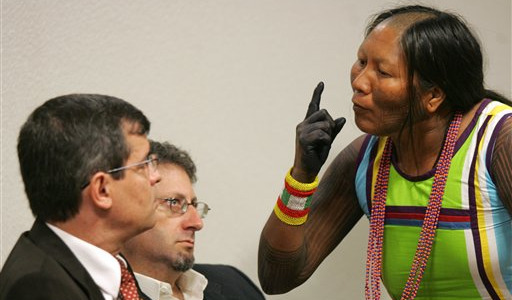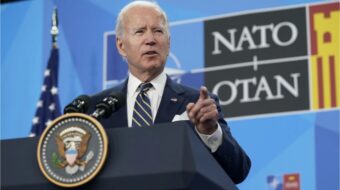
Egypt: Opposition politicians jailed
Egyptian police last week arrested over 30 members of the Muslim Brotherhood including deputy head Mahmoud Ezzat and two other leaders. The reason given was participation in banned political activities. Speculation is rampant, according to Al Jazeera, that the arrests represent Mubarak government precautions in anticipation of elections later this year, a common scenario in recent years. Although banned since 1954, Brotherhood candidates, running as independents, won 20 percent of parliamentary seats in 2005. The movement chose Mohammed Badi as its new leader in January. The Muslim Brotherhood has pioneered in combining political activity and charity work, observes the BBC. Brotherhood leader Gamal Nassar told Al Jazeera: “The arrests will definitely affect Egypt’s image, both internally and externally.”
Sri Lanka: Human rights abuses charged
Almost a year after the 30-year-long Tamil insurgency ended, the government faces charges that 11,000 suspected rebels in prison are at risk for torture and are being held incommunicado. Human Rights Watch last month issued a report based on interviews with family members and humanitarian workers claiming that prisoners in “legal limbo for months” are held indefinitely and arbitrarily. Children are included and Red Cross services are denied. Government refusal to release names has fed suspicion that some people languishing in detention camps are mere sympathizers or those forced to assist rebel fighters. Government spokespersons cited by Inter Press Service say prisoners are being rehabilitated for return into society and that some are still being investigated.
Romania: Plans afoot for U.S. missile defense system
President Traian Basescu last week announced his government’s approval, pending parliamentary assent, of U.S. missile interceptors deployed in Romania. He emphasized that the Middle East, Iran especially, represents the potential threat, not Russia. Moscow’s vociferous objection last year was central to Washington’s scrapping of plans to place interceptors in Poland and a radar detection system in the Czech Republic. Romania presently hosts U.S. military training facilities and a base on the Black Sea. Its government also facilitated CIA prisoner transport and detention programs (“extraordinary rendition”), according to euobserver.com. A State Department spokesperson linked anti-missile facilities in Romania, not operational until 2015, to ship-based interceptor systems in the Black Sea. The placing of other missile interceptors in Poland is still under study, he said.
Brazil: Giant dam on track despite protests
The government last week licensed construction of the world’s third largest dam and hydroelectric project on condition that investors contribute $800 million toward mitigation of adverse social and environmental effects. Justification of the facility located in the Xingu river basin at Belo Monte, along with 70 other dams on Amazonian waterways, rests on energy needs envisioned for expanding industrialization. Hydroelectricity is touted as a means for reducing atmospheric carbon emissions. Opposition to the project, set for completion in 2014, has reportedly been intense.
Indigenous groups and ecologists say 80 percent of the river water will be diverted, fish will be poisoned, and flooding will ensue. Protesters claim population displacement threatens the cultural integrity and survival of 24 indigenous communities. The dam is seen as emblematic of a wave of privatization spreading throughout the region.
Photo: Tuira Kayapo, right, leader of the indigenous Kayapo tribe, speaks to Aloysio Guapindaia, left, director of the National Indian Foundation, FUNAI, during a public hearing on the Belo Monte dam project, at the Commission of Human Rights of the Federal Senate in Brasilia, the capital of Brazil, last December. (AP/Eraldo Peres)












Comments